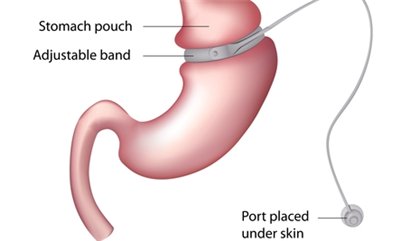Weight loss plateau while on Ozempic? Discover why it happens and practical tips to break through and reach your goals.
Why Does Weight Loss Plateau Even with Ozempic?
If you’re using Ozempic to aid weight loss and have noticed that the pounds are no longer dropping off as they used to, you’re not alone. This phenomenon is often referred to as a weight loss plateau, and it can be both frustrating and confusing. You might wonder, “Why isn’t Ozempic working anymore?” The answer lies in a combination of biological adaptation, lifestyle factors, and sometimes unrealistic expectations.
Weight loss plateaus occur because your body is a master of adaptation. As you shed pounds, your metabolism slows down to conserve energy, meaning you burn fewer calories than before. Moreover, your body can become accustomed to the dosage of Ozempic, reducing its effectiveness over time. This isn’t a failure of the medication but rather a sign that your body is adjusting to its new norm.
How Common Are Weight Loss Plateaus with Ozempic?
You may be surprised to know that weight loss plateaus are extremely common, even among those on medications like Ozempic. According to a 2023 study published in Obesity Medicine, nearly 70% of individuals on semaglutide (the active ingredient in Ozempic) experienced a plateau in their weight loss after about 16 weeks of treatment.
This high occurrence highlights the fact that a plateau is a natural part of the weight loss journey, regardless of medication. It’s not just about the medication—your lifestyle, eating habits, exercise routine, and even stress levels can all play a role in whether or not you’ll continue to see the numbers drop on the scale.
“Did You Know?”
Did you know that muscle mass plays a critical role in your metabolism? Losing muscle instead of fat can slow down your metabolism and contribute to a plateau. Maintaining physical activity, especially strength training, can help mitigate this effect. (Source: Journal of Clinical Endocrinology & Metabolism, 2022)
Factors Contributing to a Plateau
Calorie Adjustment: As your weight decreases, your calorie needs also decline. If you continue to consume the same amount of calories as when you first started, you could be eating more than what your body now needs. A recalibration of calorie intake might be required to continue seeing results.
Metabolic Adaptation: The body naturally reduces energy expenditure as you lose weight. This phenomenon is called “adaptive thermogenesis.” Essentially, your body is trying to protect itself from what it perceives as starvation by burning fewer calories.
Exercise Habituation: If you’ve been consistently doing the same exercise routine, your body might have adjusted to it. To break through a plateau, changing your workout—adding resistance training or even incorporating high-intensity interval training (HIIT)—can help kickstart your metabolism again.
Practical Tips to Overcome a Plateau
- Adjust Your Diet: Consider recalculating your daily caloric needs. Many people find success with intermittent calorie reduction or carb cycling, as both approaches can help counter metabolic adaptation.
- Increase Physical Activity: Adding variety to your exercise routine, especially by including strength training, can help overcome a plateau. Muscle is metabolically active, meaning it burns more calories even at rest.
- Discuss Dosage with Your Doctor: If you’ve been on Ozempic for a while, your body might have adapted to your current dosage. Speak to your healthcare provider about whether adjusting the dosage could help you overcome the plateau.
- Track Non-Scale Victories: Sometimes, your progress isn’t reflected by the scale. Are you losing inches around your waist? Are your energy levels improving? These are important indicators that your health is still moving in the right direction.
“Did You Know?”
Did you know that weight regain is one of the biggest challenges faced by those losing weight with or without medication? In a 2021 study, nearly 80% of participants experienced some degree of weight regain after significant loss. This is why long-term lifestyle changes are crucial to sustain weight loss. (Source: American Journal of Lifestyle Medicine, 2021)
Comparison of Weight Loss Plateau Timing: Ozempic vs. Popular Weight Loss Solutions
Ozempic
16 weeks
Phentermine
10 weeks
Orlistat
11 weeks
Diet/Exercise
8 weeks
Saxenda
12 weeks
Legend:
- Ozempic – Pink Column
- Phentermine – Blue Column
- Orlistat – Orange Column
- Diet/Exercise – Green Column
- Saxenda – Purple Column
The average time to reach a weight loss plateau varies based on the approach taken. With Ozempic, a plateau is commonly observed around 16 weeks. In comparison, users of Phentermine report hitting a plateau at around 10 weeks, Orlistat at 11 weeks, Saxenda at 12 weeks, while those primarily focusing on lifestyle changes like diet and exercise often experience a plateau after just 8 weeks.
Is It Time for a Medical Review?
A weight loss plateau is also a good time to revisit your treatment plan with your healthcare provider. There might be other medications or combinations of therapies that can complement Ozempic. For instance, some individuals find success by combining Ozempic with other drugs that target different aspects of weight regulation, like appetite suppression or fat absorption.
It’s also worth discussing metabolic assessments to understand whether your thyroid function, insulin sensitivity, or hormone levels are affecting your progress. Often, underlying medical conditions can contribute to a slowdown in weight loss.
Pricing and Cost Considerations
While it’s important to focus on health benefits, cost can be a practical barrier for many. The average monthly cost of Ozempic is around $900 to $1,200. Adding dietary consultations, gym memberships, and potentially other medications could add to these costs. If Ozempic is financially challenging, speak to your healthcare provider about available alternatives or generic versions that could work for you.
Our Editorial Advice
Weight loss is not a straight path—it’s full of curves, stops, and starts. If you’ve hit a plateau while using Ozempic, it may be disheartening, but it doesn’t mean you’ve failed. Consider this an opportunity to reassess and optimize your lifestyle and treatment plan. Adjust your workouts, change up your diet, or even take a mental health day to refresh. Remember, reaching your goal is more of a marathon than a sprint, and persistence is your best ally.
It’s crucial to stay in touch with your healthcare provider and take each plateau as an opportunity for growth and learning. Sometimes, what feels like stagnation is actually a moment for reflection, redirection, and eventually, greater success.









